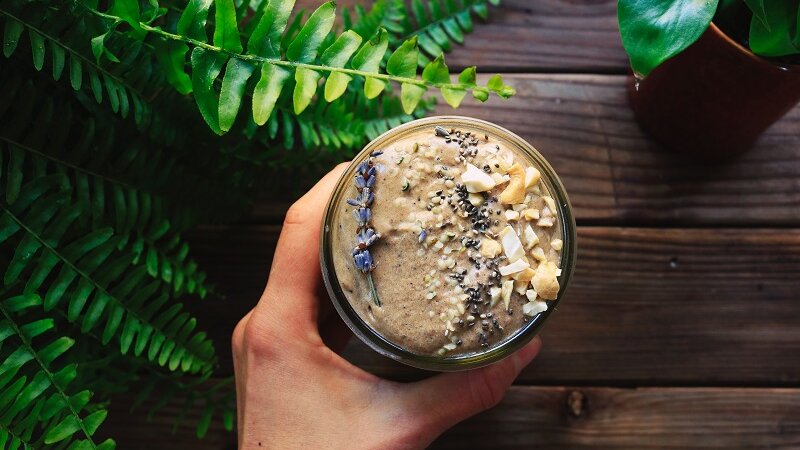Your Lifestyle and Your Mood
Episode #8 of the course How to improve your mood by Patricia Haddock
Welcome back.
How’s your mood right now? If it needs a quick boost, take a five-minute time out and get some fresh air. Don’t think about everything you have to do; just enjoy being outside. As you learned yesterday, being present and mindful is good for your mood.
Now, let’s turn to your lifestyle and how your habits affect your mood.
Exercise for Your Mood
You probably already know that exercise is good for your body, but you may not realize that it’s also good for your brain and your mood. When you are physically active:
• Your brain releases endorphins—feel-good neurochemicals.
• You boost your brainpower and energy by increasing oxygen and nutrients that feed your brain and body.
• Your ability to ward off illnesses is improved.
• It is easier for you to manage stress.
Exercise contributes to a good mood, and you’d like to exercise more, but how can you fit it into your already crowded life?
Sure, it’s good for you, but you hate to exercise. It’s sweaty, messy, and, frankly, boring.
Whether you like to exercise or not, have time or not, you can gain the benefits without the hassle. You just need to find ways of being more active:
• Park a block away from your destination and walk vigorously to get your blood flowing. The longer the drive, the longer the walk you need.
• Skip the elevator and escalator and take the stairs.
• Turn walking the dog into a brisk outing.
• Love tennis, biking, swimming, or dancing? Do more of it.
If you haven’t been active or if you have health conditions, check with a health practitioner before becoming more active.
Eat and Drink Your Way to a Better Mood
Have you ever reached for a gooey, yummy piece of chocolate when you’re in a bad mood?
What about that pint of cookies-and-cream ice cream? Have you ever huddled over it with a spoon when you feel down?
Then there’s the cold-beer, bourbon-on-ice, or pack-of-cigarettes remedy. And let’s not forget any recreational drug of choice.
It lifted your mood, didn’t it?
Was the crash afterward worth it?
Usually not.
What you eat and drink affects your brain, chemistry, and physiology, which affect your mood.
Fresh, seasonal, locally-grown foods are your best choice since their nutrients are at their maximum. Distant crops must be harvested early and refrigerated to avoid spoilage. There’s a huge difference in the benefits you get from an apple picked yesterday and from one flown from several thousand miles away. Buy and prepare the highest quality food you can afford.
Hydration also plays an important role in mood. If you’re thirsty, you’re already dehydrated. The average, healthy person needs between 90 and 125 ounces of water daily. The more active you are, the more hydration you need.
The higher the quality of food, the more you stay hydrated, the better for your brain and body. That, in turn, is better for your mood. Here are a few tips:
• Eat a healthy breakfast.
• Choose complex carbs, like fruit, vegetables, whole grains.
• Avoid snack machine offerings and choose healthy snacks instead.
• Limit sugary, processed foods, caffeinated drinks, and alcohol. The quick boost leads to a quick crash.
Sleep Away a Bad Mood
“The best bridge between despair and hope is a good night’s sleep.” —E. Joseph Cossman
How hard is it to be in a good mood after a bad night’s sleep?
Pretty hard.
Adequate sleep is about eight hours each night; some people need a bit more; some, a bit less.
Anything less than what you need creates a sleep deficit, which is cumulative. Lose one hour a night for a week, and you have a sleep deficit of seven hours. This leads to a myriad of problems, such as lack of concentration, irritability, poor motor skills, reduced mental acuity, and more.
A sleep deficit equals a bad mood. Here are a few tips on how to improve your sleep:
• Power down before bed. About 30 to 60 minutes before turning in, turn off the television, computer, video games, smartphone, e-reader, and so on.
• Set the mood. Turn down the lights and relax. This is a good time to meditate.
• Go to bed at the same time each night and awake at the same time each morning to regulate your sleep cycle.
Just as you can control your moods with your thoughts, you also can control them through your lifestyle habits.
Action Steps
1. Pay attention to these three lifestyle habits.
2. Where can you improve?
3. Set a goal, and as you improve, monitor the effect it has on your mood.
Lifestyle matters for mood, and so does your environment. Tomorrow you will learn how to improve your mood with a few small adjustments. Until then, have a good-mood day.
Recommended book
The Mood Diary: A 4-Week Plan to Track Your Emotions and Lifestyle by Andrea Harm, MA
Share with friends

